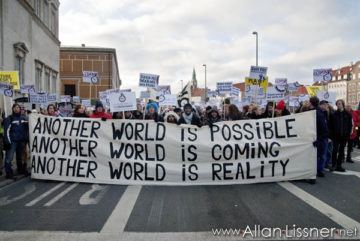by Ashutosh Jogalekar

The Founding Fathers aren’t much in fashion among liberals these days. A good friend of mine has been trying to get a novel about Thomas Jefferson published for three years. He has approached more publishers than he can care to name, publishers of all sizes, reputations and political persuasions. He tells me that while most mainstream, as well as niche publishers, have turned his manuscript down, a small number of right-wing houses that typically publish conservative polemic are deeply interested.
My friend’s problems with publishing Jefferson mirror the liberals’ problem with the Founding Fathers in general. At best they are dismissed as outdated dead white men, and at worst as evil slaveholders. But as an immigrant who came to this country inspired by the vision these men laid down, I don’t feel that way. Neither does my 4-year-old who proudly dressed up as George Washington, of her own accord, for Halloween last year. She stood proudly in her little tricorne hat and blue colonial coat, her face full of determination, as if she too was leading an army (she was particularly inspired by the stories I told her of Valley Forge and Washington’s crossing of the Delaware). Both she and I believe that while these men’s flaws were pronounced, and vastly so in some cases, the good they did far outlives the bad, and they were great men whose ideals should keep guiding us. More importantly, I believe that a liberal resurrection of the Founding Fathers is in order today if we want to fight the kind of faux patriotism foisted on us by the Party of Trump (“POT”. We can no longer call his party the Republican Party — that party of Dwight Eisenhower, of Ronald Reagan, of respect for intelligence, fiscal responsibility, international stewardship and opposition to real and not perceived evil, is gone, kaput, pushing up the daisies, as the memorable sketch would say: it is an ex-party).
But we must remember the times in which they lived if we want to free ourselves of the disease of presentism. As wealthy Virginia planters, it would be virtually impossible to imagine Washington or Jefferson not owning slaves. Their acceptance of slavery was, however evil and anachronistic it seems to us, common among people of their era. However, their ideas about free speech, religious tolerance, separation of powers, and individual rights were not. In other words, as Gibbon said about Belisarius, “His imperfections flowed from the contagion of the times; his virtues were his own.” In addition, it is important to not bin “The Founders” in one homogenous, catch-all bin. Washington freed his slaves and was a relatively beneficent and enlightened master for his times, loathe to participating in the wrenching practice of separating families, for instance; Adams and twenty-two of the signers of the Declaration of Independence did not own any at all; Franklin later became an abolitionist; Jefferson was probably the biggest culprit – not so much because he owned many slaves but because the gap between his soaring rhetoric and the reality at Monticello, not to mention his relationship with Sally Hemings, is glaring. To recognize these differences between the Founding Fathers is to not excuse their practices; it is to recognize the possibility of human improvement and the fact that in every age there is a spectrum of men and morality.



 April 2018: ‘Tis the Season of Giddiness in Democratlandia. Republicans are saddled with a widely despised President and riven by internal dissension. The Republican leadership in Congress is lurching from fiasco to fiasco – interrupted briefly by one great “success” on tax cuts. The zombie candidates of the Tea Party are still stalking establishment Republicans across the land. And, somewhere in his formidable fastness, the Great Dragon Mueller is winding up for the fiery breath that will consume the world of Trumpism like a paper lantern. And a Blue Wave – nay, a Tsunami – is headed towards the Republicans in Congress, looking to engulf them in November.
April 2018: ‘Tis the Season of Giddiness in Democratlandia. Republicans are saddled with a widely despised President and riven by internal dissension. The Republican leadership in Congress is lurching from fiasco to fiasco – interrupted briefly by one great “success” on tax cuts. The zombie candidates of the Tea Party are still stalking establishment Republicans across the land. And, somewhere in his formidable fastness, the Great Dragon Mueller is winding up for the fiery breath that will consume the world of Trumpism like a paper lantern. And a Blue Wave – nay, a Tsunami – is headed towards the Republicans in Congress, looking to engulf them in November.